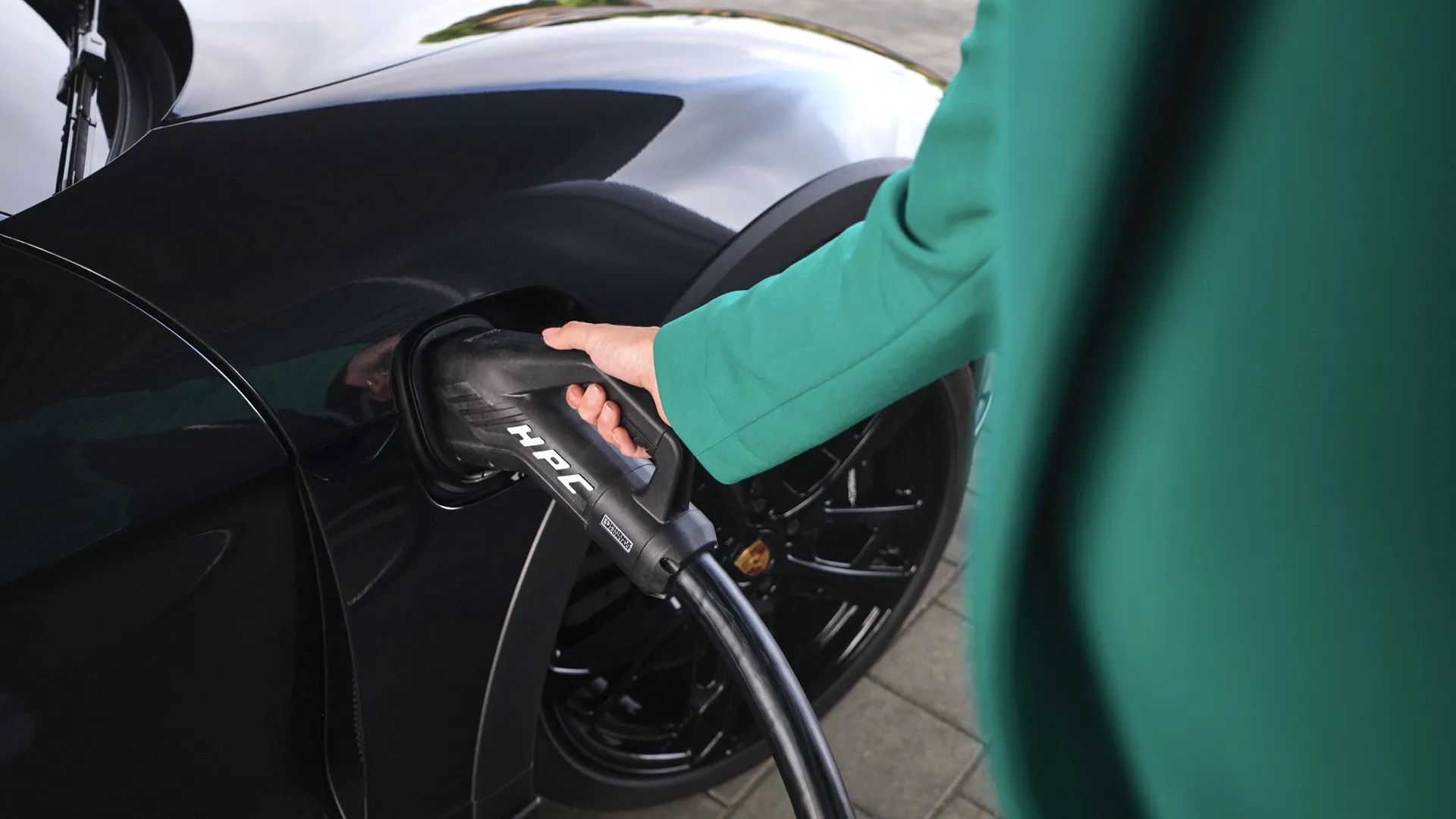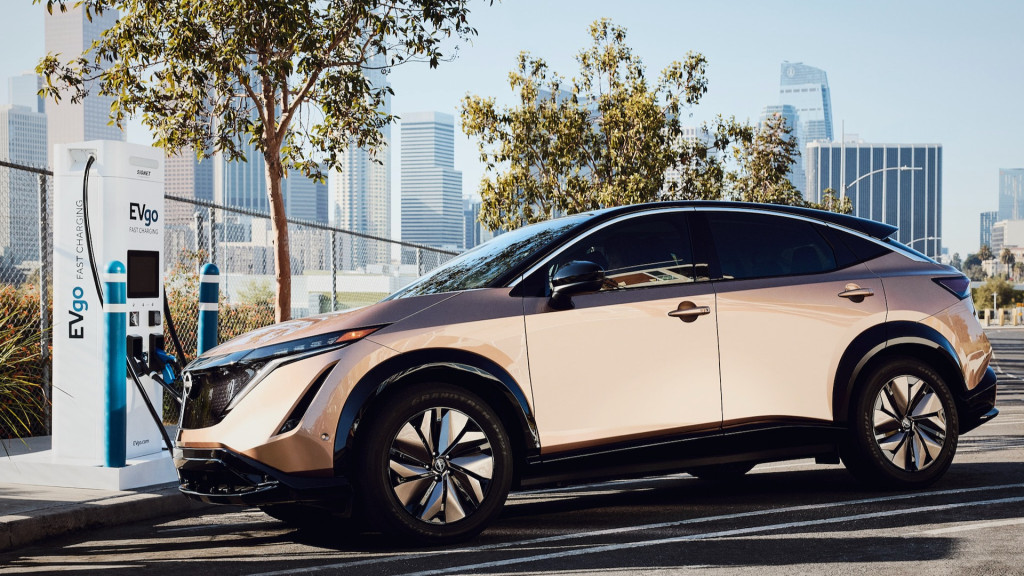

Here’s why the federal EV charging network is rolling out so slowly
The Biden administration funded a $7.5 billion national EV charging network as part of the 2021 infrastructure law, but despite the investment new charging stations are rolling out at a slow pace, reports Automotive News.
The National Electric Vehicle Infrastructure (NEVI) program calls for 500,000 charging stations nationwide, but to date only eight stations in six states have opened, according to the report. That’s largely because, while the federal government designates the funding, states take the lead in determining how and when it is used.

2023 Nissan Ariya at EVgo charging station
Companies that win funding through the federal program can’t uniformly plan for its use nationwide because they must deal with individual state regulators and bureaucracies that all operate differently, Automotive News notes, adding that charging companies must also deal with a “patchwork” of public and private utilities in different regions of the country.
The federal government released the first round of NEVI funding to 35 states in September 2022, then in early 2023 outlined rules for chargers—involving access, privacy, payment systems, and more—that any company looking to claim federal funds would need to follow. The first station built with NEVI funding was up and running in Ohio in December 2023.

GMC Hummer EV at Pilot travel center
As of May 28, 2024, 23 states have begun releasing NEVI funding, according to Automotive News, citing data from EVAdoption. That includes 10 states that have closed the first round of applications, one is open for applications, 10 have a tentative start date for accepting applications, and six have not provided an application timeline.
Ohio, New York, Colorado, and Pennsylvania are among the fastest-moving states when it comes to using NEVI, funding, according to Automotive News, while Idaho, Mississippi, Nevada, South Carolina, South Dakota, and Wyoming are the slowest. That’s partly down to anticipated demand for EV charging in those states; just 87 EVs were sold in Wyoming in the first quarter of 2024, according to S&P Global Mobility. So the differing pace of EV adoption among the states may also affect the buildout of the national charging network.
Add a comment Cancel reply
Comments (0)
Related posts


Electric SUVs: Top 6 Models for Family Trips











